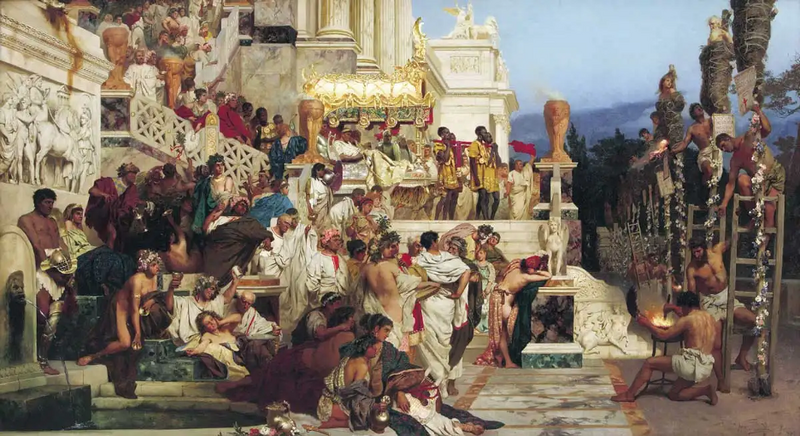
LATN 221/321/421 - Rhetoric
Type: 200/300/400 level
Units: 3.00 (each)
Term: Fall 2025
Instructor: Dr. D'Elia
Delivery: In-Person
Textbook:
Latin dictionary (Paperback)
(Used for consultation during class, during quizzes, and the final exam. Example = The New College Latin & English Dictionary = $11 on Amazon)
Latin Oratory: Cicero, Invective, & the End of the Roman Republic
Marcus Tullius Cicero (107-44BCE) was the greatest Latin orator of Ancient Rome. For over two thousand years, his orations have been admired, studied, and imitated as superb examples of Latin prose style and eloquent expression. Rhetoric was the most important tool in the crisis-filled political culture of late Republican Rome. Cicero was the master at manipulating juries and transforming public opinion.
NOTE: 221, 321, & 421 are co-taught with LATN 800.
NOTE: This course is repeatable for credit under a different topic title.